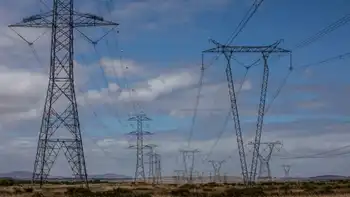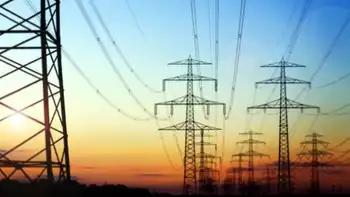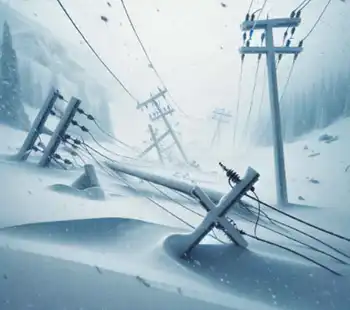Prevent Summer Power Outages

CSA Z462 Arc Flash Training - Electrical Safety Essentials
Our customized live online or in‑person group training can be delivered to your staff at your location.

- Live Online
- 6 hours Instructor-led
- Group Training Available
Summer Heatwave Electricity Shutoffs strain utilities and vulnerable communities, highlighting energy assistance, utility moratoriums, cooling centers, demand response, and grid resilience amid extreme heat, climate change, and rising air conditioning loads.
Key Points
Service disconnections for unpaid bills during extreme heat, risking vulnerable households and straining power grids.
✅ Moratoriums and flexible payment plans reduce shutoff risk.
✅ Cooling centers and assistance programs protect at-risk residents.
✅ Demand response, smart grids, and efficiency ease peak loads.
As summer temperatures soar, millions of people across the United States face the grim prospect of electricity shutoffs due to unpaid bills, as heat exacerbates electricity struggles for many families nationwide. This predicament highlights a critical issue exacerbated by extreme weather conditions and economic disparities.
The Challenge of Summer Heatwaves
Summer heatwaves not only strain power grids, as unprecedented electricity demand has shown, but also intensify energy consumption as households and businesses crank up their air conditioning units. This surge in demand places considerable stress on utilities, particularly in regions unaccustomed to prolonged heatwaves or lacking adequate infrastructure to cope with increased loads.
Vulnerable Populations
The threat of electricity shutoffs disproportionately affects vulnerable populations, including low-income households who face sky-high energy bills during extreme heat, elderly individuals, and those with underlying health conditions. Lack of access to air conditioning during extreme heat can lead to heat-related illnesses such as heat exhaustion and heatstroke, posing serious health risks.
Economic and Social Implications
The economic impact of electricity shutoffs extends beyond immediate discomfort, affecting productivity, food storage, and the ability to work remotely for those reliant on electronic devices, while rising electricity prices further strain household budgets. Socially, the inability to cool homes and maintain basic comforts strains community resilience and exacerbates inequalities.
Policy and Community Responses
In response to these challenges, policymakers and community organizations advocate for measures to prevent electricity shutoffs during heatwaves. Proposed solutions include extending moratoriums on shutoffs, informed by lessons from COVID-19 energy insecurity measures, implementing flexible payment plans, providing financial assistance to at-risk households, and enhancing communication about available resources.
Public Awareness and Preparedness
Raising public awareness about energy conservation during peak hours and promoting strategies to stay cool without overreliance on air conditioning are crucial steps towards mitigating electricity demand. Encouraging energy-efficient practices and investing in renewable energy sources also contribute to long-term resilience against climate-driven energy challenges.
Collaborative Efforts
Collaboration between government agencies, utilities, nonprofits, and community groups is essential in developing comprehensive strategies to safeguard vulnerable populations during heatwaves, especially when systems like the Texas power grid face renewed stress during prolonged heatwaves. By pooling resources and expertise, stakeholders can better coordinate emergency response efforts, distribute cooling centers, and ensure timely assistance to those in need.
Technology and Innovation
Advancements in smart grid technology and decentralized energy solutions offer promising avenues for enhancing grid resilience and minimizing disruptions during extreme weather events. These innovations enable more efficient energy management, demand response programs, and proactive monitoring of grid stability, though some utilities face summer supply-chain constraints that delay deployments.
Conclusion
As summer heatwaves become more frequent and severe, the risk of electricity shutoffs underscores the urgent need for proactive measures to protect vulnerable communities. By prioritizing equity, sustainability, and resilience in energy policy and practice, stakeholders can work towards ensuring reliable access to electricity, particularly during times of heightened climate vulnerability. Addressing these challenges requires collective action and a commitment to fostering inclusive and sustainable solutions that prioritize human well-being amid changing climate realities.











